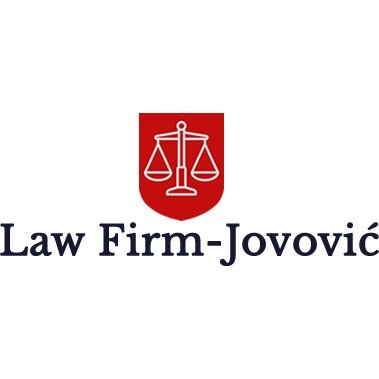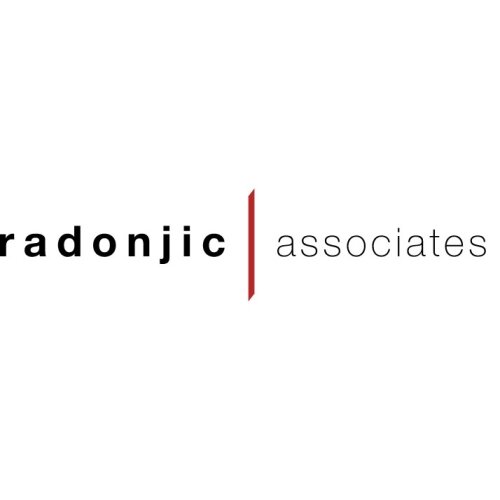Best Project Finance Lawyers in Montenegro
Share your needs with us, get contacted by law firms.
Free. Takes 2 min.
Or refine your search by selecting a city:
List of the best lawyers in Montenegro
About Project Finance Law in Montenegro
Project finance in Montenegro refers to the funding of large-scale, long-term infrastructure, energy, and industrial projects on a non-recourse or limited recourse financial structure. In these transactions, the project's cash flow and assets serve as the primary source of repayment and security for lenders. Montenegro's strategic location and its aspirations for economic growth have made it an attractive destination for project finance, particularly in energy, tourism, transportation, and public infrastructure sectors. The legal landscape in Montenegro for project finance is shaped by a mix of domestic laws and international practices, providing a structured framework for both local and foreign investors.
Why You May Need a Lawyer
Engaging a lawyer in project finance transactions in Montenegro is often essential due to the complexity and the value at stake in such deals. Here are common situations where legal assistance is crucial:
- Structuring the project finance deal, including negotiating term sheets and loan documentation.
- Compliance with local regulatory requirements, permits, and licenses.
- Drafting and negotiating project contracts such as Engineering, Procurement and Construction (EPC), Operations and Maintenance (O&M), and Power Purchase Agreements (PPA).
- Managing relationships with government agencies and navigating public-private partnership (PPP) structures.
- Addressing issues related to land acquisition, collateral, and security interests.
- Resolving disputes through mediation, arbitration, or litigation.
- Protecting investors' rights and mitigating legal and financial risks.
Local Laws Overview
Montenegro’s legal framework for project finance is influenced by its business-friendly policies and alignment with European Union standards. Key aspects include:
- Company Law: Governs the establishment and operation of special purpose vehicles (SPVs) commonly used in project finance.
- Concessions Law and PPP Law: Provide the legal basis for public-private partnership projects, including infrastructure and utilities.
- Secured Transactions Law: Regulates collateral arrangements, including mortgages and pledges on project assets and revenues.
- Foreign Investment Law: Guarantees fair treatment and legal security for foreign investors, allowing for profit repatriation and avoidance of double taxation.
- Environmental and Construction Laws: Set out requirements for obtaining environmental permits, construction licenses, and compliance with health and safety standards.
- Energy Law: Governs renewable and conventional energy projects, licensing, and grid access.
- Banking and Finance Regulations: Address cross-border financing, currency controls, and anti-money laundering requirements.
Frequently Asked Questions
What is project finance and how is it applied in Montenegro?
Project finance is a method of funding large-scale projects where repayment is primarily based on the project’s cash flow, with the project’s assets and rights used as collateral. In Montenegro, it is mainly applied in infrastructure, energy, tourism, and public works projects.
Are there any restrictions on foreign investment in project finance deals in Montenegro?
Montenegro is generally open to foreign investment. There are no significant restrictions on foreign ownership or participation in project finance, but compliance with anti-money laundering and regulatory approvals is required.
What typical security can be offered for project finance in Montenegro?
Typical security includes mortgages on real estate, pledges over movables and shares, assignment of receivables, and security over project accounts. Legal practitioners ensure these are legally enforceable.
What are the key regulatory bodies involved in project finance projects?
Regulatory oversight is often provided by the Ministries for Economy, Finance, Sustainable Development and Tourism, the Energy Regulatory Agency, and local municipal authorities, depending on the project sector.
How are public-private partnerships (PPP) structured in Montenegro?
PPP projects are governed by the Law on Public-Private Partnerships and usually involve a concession or contractual arrangement between a public authority and a private investor or consortium to design, build, finance, operate, or maintain infrastructure.
Is it necessary to establish a special purpose vehicle (SPV) for a project?
While not strictly required, it is standard practice to establish an SPV dedicated to a single project to isolate financial risk and simplify contractual relationships among the project’s stakeholders.
How long does it typically take to close a project finance deal?
The timeline depends on the project’s complexity, sector, and regulatory requirements. On average, preparing and closing a project finance transaction may take several months to over a year.
Can profits be freely repatriated by foreign investors?
Yes, Montenegro’s legal framework allows for the repatriation of profits, dividends, and capital by foreign investors, subject to tax compliance and any applicable reporting obligations.
What are the main risks in project finance transactions in Montenegro?
Key risks include regulatory changes, delays in permits, currency fluctuations, construction or operational risks, and disputes with public authorities or contractors. Legal advice helps in risk mitigation.
What dispute resolution mechanisms are available?
Disputes may be resolved through Montenegrin courts, domestic arbitration, or international arbitration if the parties agree. Many project finance contracts favor neutral arbitration forums.
Additional Resources
If you are seeking further information or assistance regarding project finance in Montenegro, the following organizations and agencies are useful resources:
- Ministry of Capital Investments - oversees infrastructure and concession projects
- Investment and Development Fund of Montenegro (IDF) - financial support for strategic projects
- Montenegro Chamber of Commerce - business and legal guidance for investors
- Energy Regulatory Agency (RAE) - information on energy projects and licensing
- Notary Chamber of Montenegro - assistance with notarization and registration of security interests
- Montenegro Business Alliance (MBA) - networking and advisory services
- Local and international law firms specialising in project finance and infrastructure
Next Steps
If you are considering project finance in Montenegro or facing specific legal issues, it is important to take the following steps:
- Consult with a local attorney experienced in project finance to assess your needs and legal options.
- Clarify your project’s objectives, timelines, and funding requirements before initiating legal consultations.
- Gather all relevant documentation, such as project plans, feasibility studies, financial models, and potential contracts.
- Ensure you understand the regulatory requirements and necessary permits for your sector.
- Request a detailed proposal or legal opinion addressing the specific risks and protections for your investment or project.
- Stay informed about updates in the regulatory environment or incentives for strategic investments.
Early legal guidance can be instrumental in structuring a successful project finance transaction and safeguarding your interests throughout the project lifecycle.
Lawzana helps you find the best lawyers and law firms in Montenegro through a curated and pre-screened list of qualified legal professionals. Our platform offers rankings and detailed profiles of attorneys and law firms, allowing you to compare based on practice areas, including Project Finance, experience, and client feedback.
Each profile includes a description of the firm's areas of practice, client reviews, team members and partners, year of establishment, spoken languages, office locations, contact information, social media presence, and any published articles or resources. Most firms on our platform speak English and are experienced in both local and international legal matters.
Get a quote from top-rated law firms in Montenegro — quickly, securely, and without unnecessary hassle.
Disclaimer:
The information provided on this page is for general informational purposes only and does not constitute legal advice. While we strive to ensure the accuracy and relevance of the content, legal information may change over time, and interpretations of the law can vary. You should always consult with a qualified legal professional for advice specific to your situation.
We disclaim all liability for actions taken or not taken based on the content of this page. If you believe any information is incorrect or outdated, please contact us, and we will review and update it where appropriate.
Browse project finance law firms by city in Montenegro
Refine your search by selecting a city.















